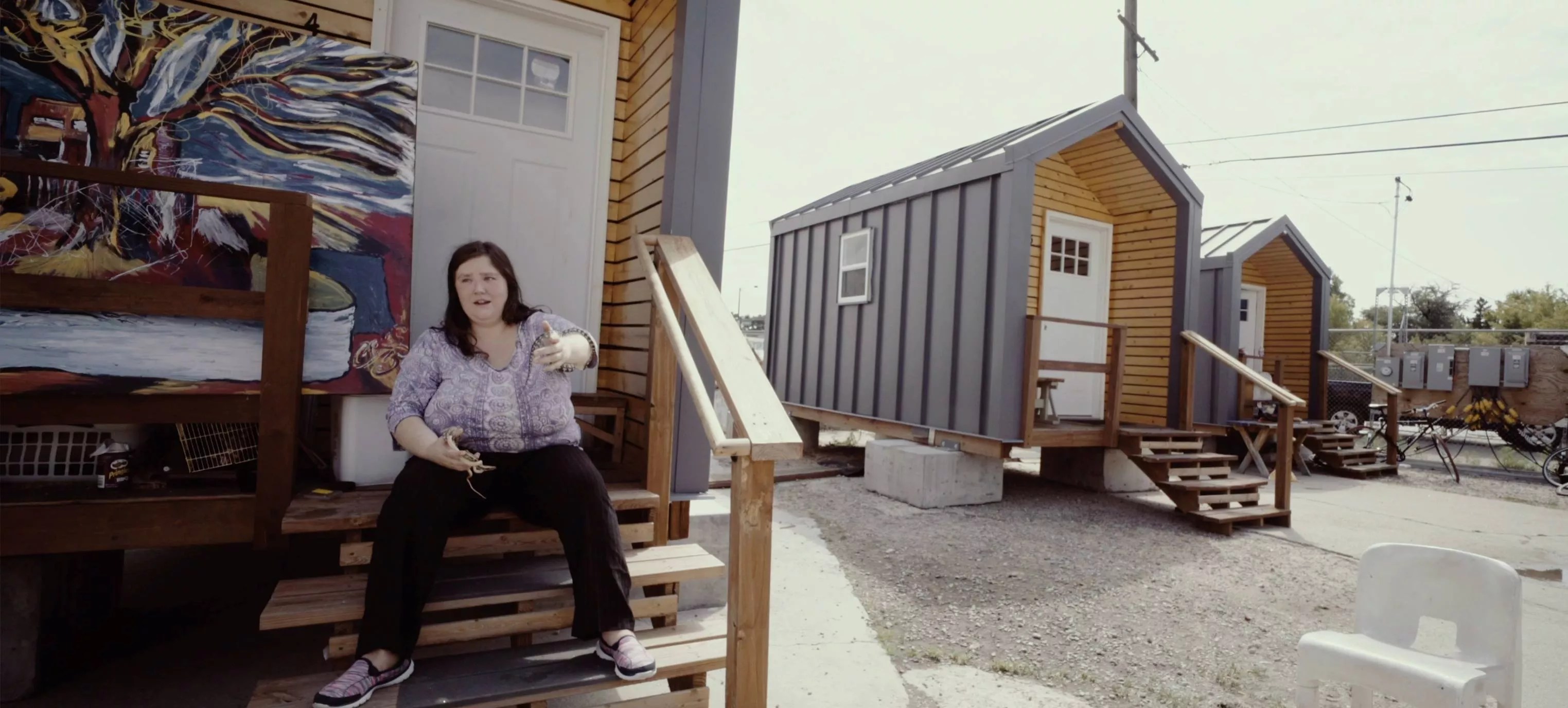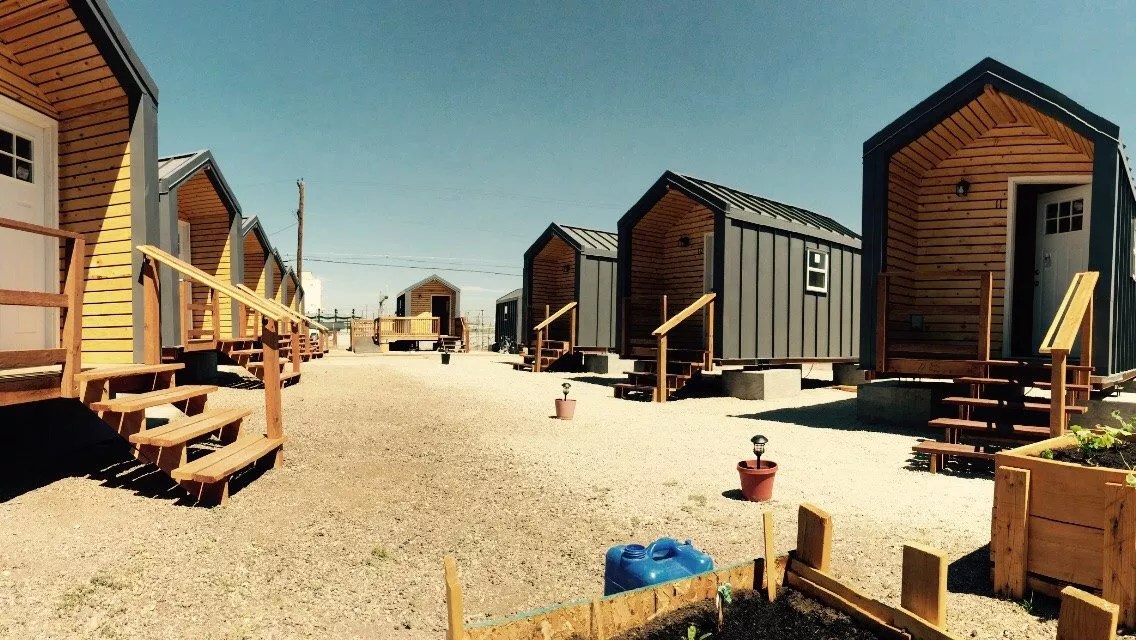
Courtesy Colorado Village Collaborative

Audio By Carbonatix
The Sie FilmCenter was packed on Monday, December 10, for the first screening of The Right to Rest, a documentary about homelessness in Denver focusing on a tiny home village in RiNo that has helped a number of formerly homeless individuals find stability – and for three of them, even created a bridge to more permanent housing over the past year.
“But this is not a film premiere,” explained Sarah Megyesy, co-director with Guillermo Roques, before the showing. Rather, the screening was more of a sneak peek, since the final version of The Right to Rest is still being edited and won’t be completed until February or March.

A packed house at the screening of The Right to Rest at the Sie FilmCenter on Monday, December 10.
Chris Walker
Still, the version of the film that was seen by a sold-out audience of well over a hundred people – including many subjects of the documentary – was slickly produced and very thorough. While on the long side, with a run time of approximately two hours, The Right to Rest provides an emotional, in-depth look at how various laws in Colorado and Denver criminalize the state of being homeless, and how the eleven tiny homes that make up the Beloved Community Village near the RTD station at 38th and Blake streets have created a sense of community and hope for individuals who used to live on the street or in homeless shelters.
“This is about asking, ‘Who belongs in cities? And what are cities for?'” says Cole Chandler of the Colorado Village Collaborative during the opening minutes of the film.
Indeed, while the documentary provides touching portraits of many of the residents living in the tiny home village – as well as behind-the-scenes looks at some of the principal players who organized it, including Chandler and Terese Howard of Denver Homeless Out Loud – The Right to Rest also methodically traces the history of laws like Denver’s urban camping ban and chronicles four attempts to pass a Right to Rest Act at the Colorado Legislature, all struck down (with Democratic lawmakers providing decisive “No” votes each year).
In the process of detailing that history, the documentary shows many other familiar faces: Denver City Council members Robin Kniech and Paul Lopez, former housing czar Erik Soliván, University of Denver researcher Donald Burnes, former mayoral candidate Kayvan Khalatbari, attorney Jason Flores-Williams and Mayor Michael Hancock.
The film does not come out of an agenda-less vacuum. Megyesy says the plan is to influence Denver voters to pass the Right to Survive Initiative that will be on the May 2019 ballot; the measure would provide protections for all people to sleep, rest and eat in public, and would effectively overturn Denver’s camping ban.

The future of the tiny home village in RiNo is in jeopardy.
Facebook/Colorado Village Collaborative
“Step one is to help the Right to Survive Initiative,” Megyesy explains. “We’re going to be doing screenings all around Denver up until the election in May. For me, that’s on the forefront. Beyond that, my hope is to screen it around the country just to continue talking about these issues, because Denver is not the only city that is criminalizing homelessness.”
Megyesy and Roques funded the project themselves (with the help of a grant from Denver Arts & Venues) and are still editing the end of the film because the future of the tiny home village is not yet certain. As Westword detailed last month, the city’s Department of Public Works surprised tiny home village organizers by scuttling their plans to relocate to the Zeppelin Taxi campus, citing concerns that the new location is in a flood inundation zone. It’s now unclear where the tiny home village will move; its current location – the second since the village was founded in July 2017 – is slated for development.
While its ending is uncertain, the film already includes a number of newsworthy items. Perhaps the most significant is the revelation that a viral video of Denver Police Department officers taking blankets from homeless protesters in December 2016 – which was viewed upwards of 18 million times and drew national condemnation of Denver’s policing of the homeless – is what really forced the Hancock administration to the table to discuss ways to make the tiny home village possible.
The documentary also provides new footage and insights into events in 2015, when advocates for those experiencing homelessness tried to construct five tiny homes and form a “Resurrection Village” in Sustainability Park. That effort was quashed by police in riot gear, but was an important influence behind the current tiny home village in RiNo.
Ticket sales for the December 10 event raised $2,200 for the tiny home village. To keep up with future screenings of The Right to Rest, visit the film’s Facebook page.